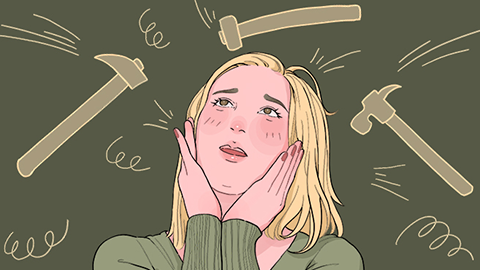How is Bipolar Affective Disorder Caused?
Bipolar affective disorder may be caused by genetic factors, neurotransmitter abnormalities, psychosocial factors, metabolic disorders, stroke, and other factors. If any abnormalities are noticed, timely medical consultation is recommended. Detailed analysis is as follows:

1. Genetic factors: Individuals with a family history of bipolar affective disorder may have an increased risk of developing the condition due to genetic predisposition. Regular mental health check-ups are recommended for early detection and intervention.
2. Neurotransmitter abnormalities: Imbalances in neurotransmitters such as dopamine and serotonin in the brain can affect emotional regulation mechanisms and increase the likelihood of developing bipolar affective disorder. Maintaining a regular sleep schedule, avoiding staying up late, and minimizing fluctuations in neurotransmitter levels are advised.
3. Psychosocial factors: Prolonged exposure to negative emotional environments or experiencing significant trauma can lead to imbalances in the emotional regulation system, triggering bipolar affective disorder. Common symptoms include alternating episodes of elevated and depressed mood, changes in interest, and sleep disturbances. Treatment primarily involves psychological counseling, such as supportive psychotherapy to stabilize mood.
4. Metabolic disorders: Metabolic issues such as abnormal thyroid function can affect nervous system functioning and trigger bipolar affective disorder. Common accompanying symptoms include weight changes, palpitations, and mood swings. Doctors may recommend medications such as levothyroxine sodium tablets, propranolol tablets, and vitamin B6 tablets to regulate metabolic levels.
5. Stroke: Sudden rupture or blockage of blood vessels in the brain can lead to ischemia and hypoxia in brain tissue, damaging brain regions involved in emotional regulation and triggering bipolar affective disorder. Common associated symptoms include headache, limb numbness, and speech impairment. Treatment should follow medical advice regarding the use of medications such as lamotrigine tablets, olanzapine tablets, and sodium citicoline for injection.
In daily life, maintaining a positive mindset, avoiding excessive stress, managing rest and diet appropriately, and engaging in suitable social activities are recommended. If significant emotional abnormalities occur, prompt professional medical assistance should be sought.






